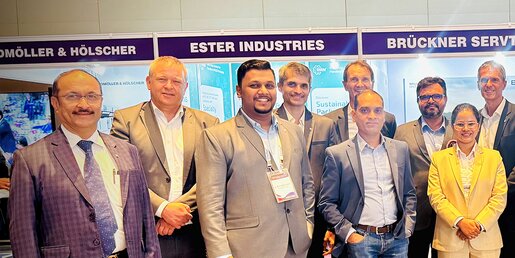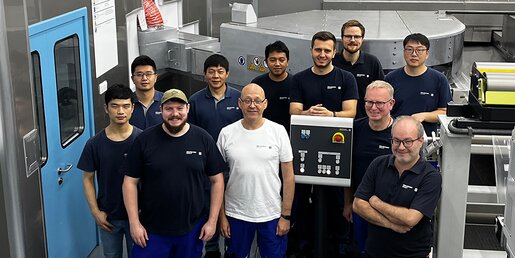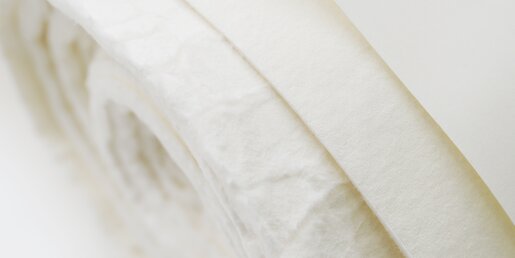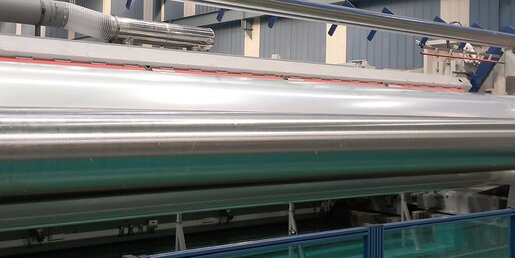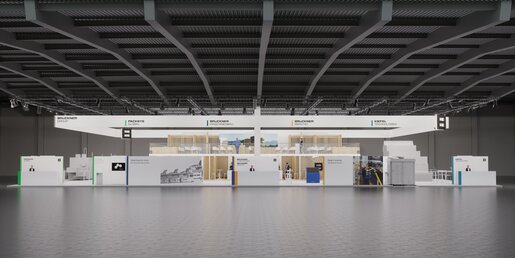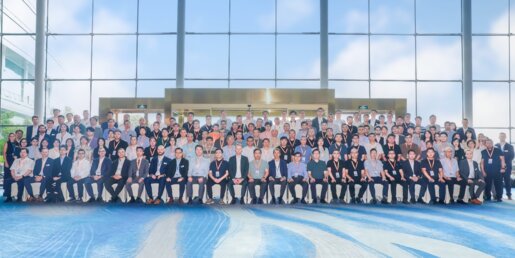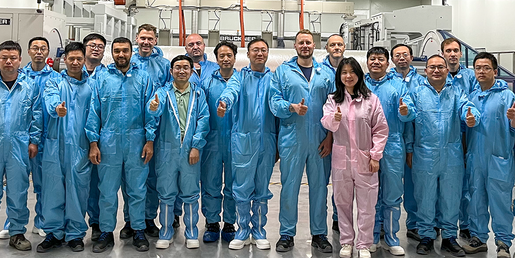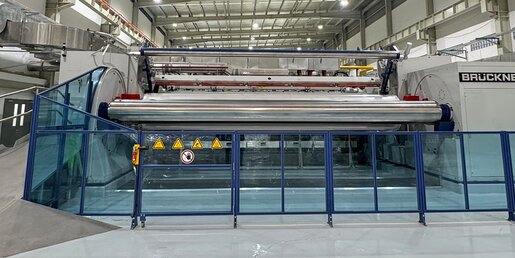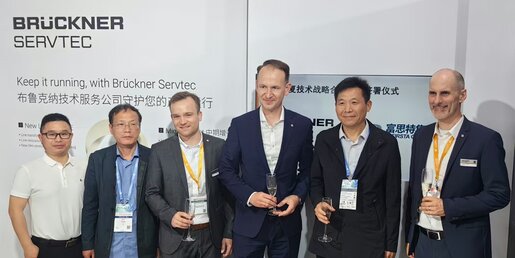Production of Sealable and Peelable BOPET Lidding films for Mono-Material PET Packaging
21 Jan 2025
Polyester (PET) bottle stream recycling is already well developed. Bottle collection, sorting, washing and mechanical recycling delivering rPET is suitable for food grade PET Trays and Biaxially oriented Polyethylene Terephthalate (BOPET) film. The chemical nature of Polyester as a “living” polymer even allows upcycling via SSP/LSP (solid/liquid state polycondensation) and chemical recycling back to the polyester building blocks.
Trays & lids with high PCR content (up to 50%) PET are already established. rPET from bottle stream is available for direct food contact. rPET from other streams e.g. food grade PET tray has to be made available to satisfy the demand for high quality rPET. Following requirements must be fulfilled:
- Hermetically closed packaging
- Convenient, easy opening function
- Plain PET thermoformed tray (mono-material)
- Mono-material BOPET lidding film, sealing on plain PET tray
- Seal strength > 2 N/15mm
- Cost efficient processing
BOPET is used for a wide range of film applications. The most common use is for packaging lidding film for which it is usually produced within a thickness range between 8 and 50 µm.
Traditional flexible packaging film usually consists of at least two layers: a structural polymer, which is used to make the body of the packaging and a polymer layer for hermetic sealing or blends for peel sealing. BOPET, with its melting point over 260 °C, is the ideal structural polymer, while a PE blown film with a melting point below 120 °C is traditionally preferred for the sealing layer. In food applications that require an enhanced barrier against oxygen or water vapor, a third layer is often added.
For mono-material PET packaging the PE sealing material is substituted by special co-polyesters supplied by Bostik under VITEL Tradename. Thick sealing layer required to achieve hermetically sealed stand up pouches and flow packs is not required for tray & lid packaging formats. Indeed, a thin layer of less than 3 microns is enough to ensure hermeticity and food safety. As a result, tray & lid packaging design is very well suited for sealable BOPET.
Production of sealable BOPET
Together with Bostik, it was possible to produce sealable BOPET layer – in the same way as it has been common practice with BOPP for many years – by co-extrusion followed by stretching. The following challenges had to be solved:
- A unique co-polyester offering the following benefits was selected to produce the peelable lidding film: low sealing initiation temperature, adequate rheology to favor good co-extrudability and allowing smooth easy opening without shedding
- The BOPET production process was adjusted to the new sealing material
- The BOPET line was customized to the changed process.
The VITEL co-polyester supplied by Bostik is selected to the requirements of the end-use application for both A-PET (amorphous) and C-PET (crystalline) trays over a very wide range (from peel to lock seal). For 2,5 µm sealing layer thickness the peel force can vary from 3 N/15 mm for 110 °C and 6 N/15 mm for 170 °C. For higher sealing layer thicknesses > 5 µm lock seal is achieved.
Experiences from trials on Brückner’s pilot line
For stretching co-extruded sealable BOPET film the following adjustments are necessary to a standard BOPET plant:
- Equipment with a three-layer die for CAB structure
- Special coating of the preheating and stretching rolls
- Individually heated preheating and stretching rolls
Due to the very different melt temperatures, the extrusion conditions must be designed and adjusted accordingly. With these different materials, particular attention must be paid to the choice of extruder and the melt flow to the die.The sealing co-polyester physical features made it necessary to adjust the process temperatures and the MDO settings in such a way that the surface temperature of the rolls never exceed the temperature limit at which the sealing materials becomes sticky.
Conclusion
Applying unique Bostik’s VITEL co-polyesters, sealable and peelable mono-material BOPET lidding films can be produced in one pass via simple co-extrusion with a BOPET line equipped with a 3-layer die (CAB). The resulting films exhibit a wide application scope using Multivac thermoforming machines and Sealpac tray sealers giving peelable closures to APET or CPET thermoforms without using a dissimilar sealing polymer such as PE.
A standard BOPET line must be equipped with a 3-layer die, special MDO pre-heating and stretching rollers plus an intelligent heat management for the preheating and stretching rollers in order to protect the sealable film surface from sticking.
About Bostik
Bostik, the adhesive division of Arkema, is a leading global player in specialty adhesives for industrial, construction, and consumer markets. For over 130 years, Bostik has been innovating by developing multifunctional bonding and sealing solutions, enabling its customers to tackle today’s and tomorrow’s ecological, energy, and technological challenges. With a presence in more than 45 countries and 7,000 employees, Bostik generated €2.7 billion in revenue in 2023. Through continuous improvement and recognized technological expertise, Bostik offers sustainable solutions tailored to meet the performance and responsibility needs of its customers. www.bostik.com

